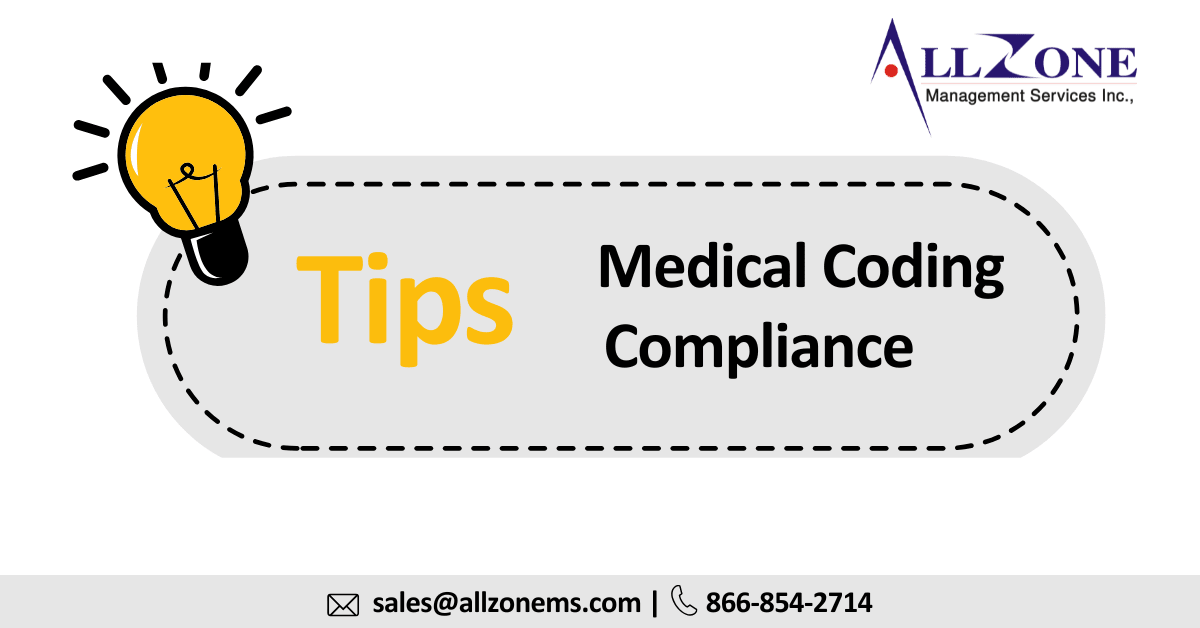Explore the intricacies of codes for a better understanding of regulatory compliance in medical coding.
Healthcare billing and documentation are based on medical coding. An accurate representation of the patient’s health journey, appropriate reimbursements, and avoiding potential legal pitfalls are crucial to ensuring accurate representation of the patient’s health journey, not just an administrative formality.
Compliance in Medical coding is crucial. It is vital to ensuring the integrity of medical records, building trust between stakeholders, and facilitating the smooth operation of the healthcare system as a whole.
Compliance in Medical Coding:
A patient’s diagnosis, treatment, and overall health journey are accurately portrayed when medical coding is compliant with the established regulations. The purpose of this precision is not solely to benefit clinicians. The responsibility also extends to ensuring that all services rendered are correctly billed and accounted for. By utilizing this method, healthcare providers are able to obtain appropriate reimbursements for their services, thereby reducing the risk of revenue loss due to incorrect or incomplete coding.
A medical practice or healthcare institution’s reputation can be tarnished by noncompliance resulting in audits, hefty fines, and a tarnished audit report.
Key Regulations and Standards:
Health Insurance Portability and Accountability Act (HIPAA):
HIPAA forms the foundation of patient data security and confidentiality. As part of its Privacy Rule, it protects patient health information, fostering a relationship of trust between patients and professionals, while its Security Rule imposes safety requirements for electronic data, which are critical to the prevention of data breaches.
International Classification of Diseases (ICD):
Serving as a global standard, the ICD systematizes the coding of diseases and health conditions. The uniformity ensures the consistency of disease diagnosis and billing in international settings, facilitating accurate global health statistics and trends.
Current Procedural Terminology (CPT):
Providing a standardized system for denoting the services and procedures provided by healthcare professionals, the Current Procedural Terminology (CPT) codes are central to the transparency of medical billing. The purpose of these codes is to simplify the Medical billing process, minimize errors, and facilitate the communication between health care providers and insurance companies regarding the nature of the services rendered during patient visits.
Healthcare Common Procedure Coding System (HCPCS):
The HCPCS extends beyond CPT codes, covering additional services and procedures such as ambulance rides and medical equipment. In addition to covering the full range of healthcare services, this comprehensive coding system also addresses gaps not covered by CPT codes, thereby ensuring that all facets of patient care are appropriately billed and compensated.
Achieving Compliance:
Compliance in medical coding is an ongoing process. To accomplish this, proactive strategies are required, as well as strict adherence to best practices, which include:
1. Continuous training and education:
Provide medical coders with ongoing training and education regarding coding standards and compliance regulations.
2. Regular audits and checks:
Conduct routine coding audits in order to assess accuracy, identify areas for improvement, and correct discrepancies in order to maintain high quality coding.
3. Up-to-date coding software:
Upgrade your coding software and technology tools to meet current regulations and improve coding accuracy.
4. Clear communication channels:
Ensure timely updates, resolutions, and actions are communicated between coders, healthcare providers, and regulatory bodies.
Culture of compliance:
Promote compliance as an integral part of the practice’s ethos through the implementation of policies, procedures, and leadership support.
Efforts to ensure compliance with regulations will allow practices to meet regulatory requirements, increase operational efficiency, increase patient trust, and improve service quality.
Compliance Isn’t Optional:
It is a nonnegotiable requirement in the world of medical coding those compliance best practices be established and adhered to. Regardless of whether in-house measures are necessary, outsourcing to seasoned coding experts may add an invaluable layer of expertise and precision. Utilizing internal best practices and external expertise, healthcare organizations can improve coding accuracy, optimize reimbursements, and remain compliant with regulatory requirements.

